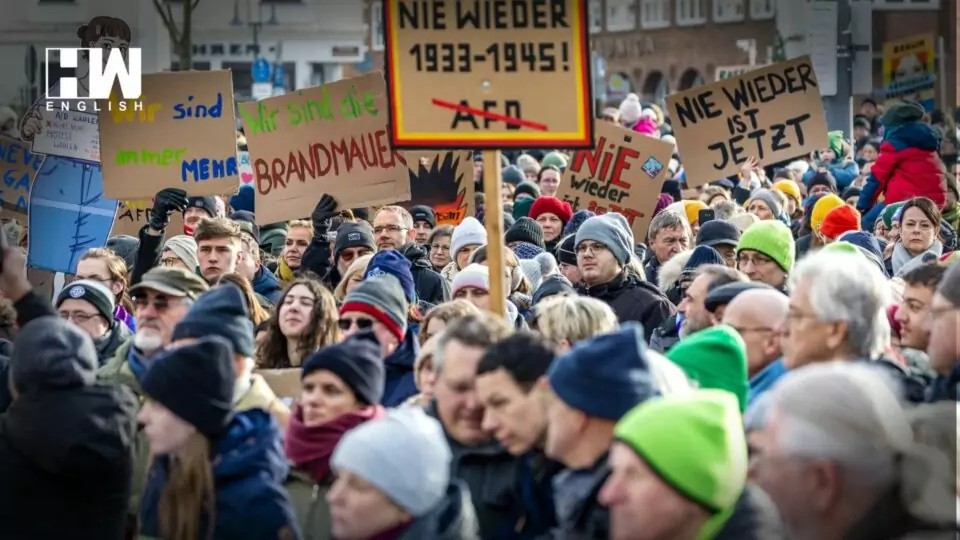In a powerful expression of public discontent, Germans united in the streets across cities like Berlin, Munich, and Cologne, as well as in the traditional strongholds of the right-wing Alternative for Germany (AfD) party in eastern areas such as Leipzig and Dresden. The catalyst for these protests was the revelation that two senior AfD members were involved in a November meeting in Berlin discussing controversial mass deportations, as brought to light by the investigative group Correctiv.
Banners held high at the rallies carried messages like “Nazis, no thank you,” “It feels like 1933, AfD ban now!” and “Investigate banning AfD,” condemning the party’s anti-immigrant stance, drawing parallels with the troubling Nazi era of the 1930s and 40s.
The meeting near Berlin, attended by figures like Martin Sellner from Austria’s Identitarian Movement, explored a contentious “remigration” proposal targeting millions of immigrants and refugees, including some with German citizenship. Although AfD acknowledged the presence of its members at the meeting, it vehemently denied embracing Sellner’s remigration project, rooted in the conspiracy theory of the “great replacement.”
Notably, a Munich protest against AfD was halted after an overwhelming 50,000 participants flooded the city centre, double the expected number. This followed a massive turnout of approximately 300,000 individuals in cities like Hamburg, Frankfurt, Hanover, and others the previous day. Despite AfD ranking second in national polls, public outrage intensified after Correctiv’s January 10 report on the clandestine meeting’s migration policies.
Protesters outside the German parliament in Berlin displayed signs declaring “no place for Nazis” and “Nazis out.” At the same time, Munich organizers estimated a staggering 200,000 attendees, leading to the premature conclusion of the demonstration due to overcrowding. Demonstrators sought to challenge far-right ideologies, with participants like Katrin Delrieux expressing hope that the protests would prompt reflection and reconsideration of extreme positions.
As an independent media platform, we do not take advertisements from governments and corporate houses. It is you, our readers, who have supported us on our journey to do honest and unbiased journalism. Please contribute, so that we can continue to do the same in future.

